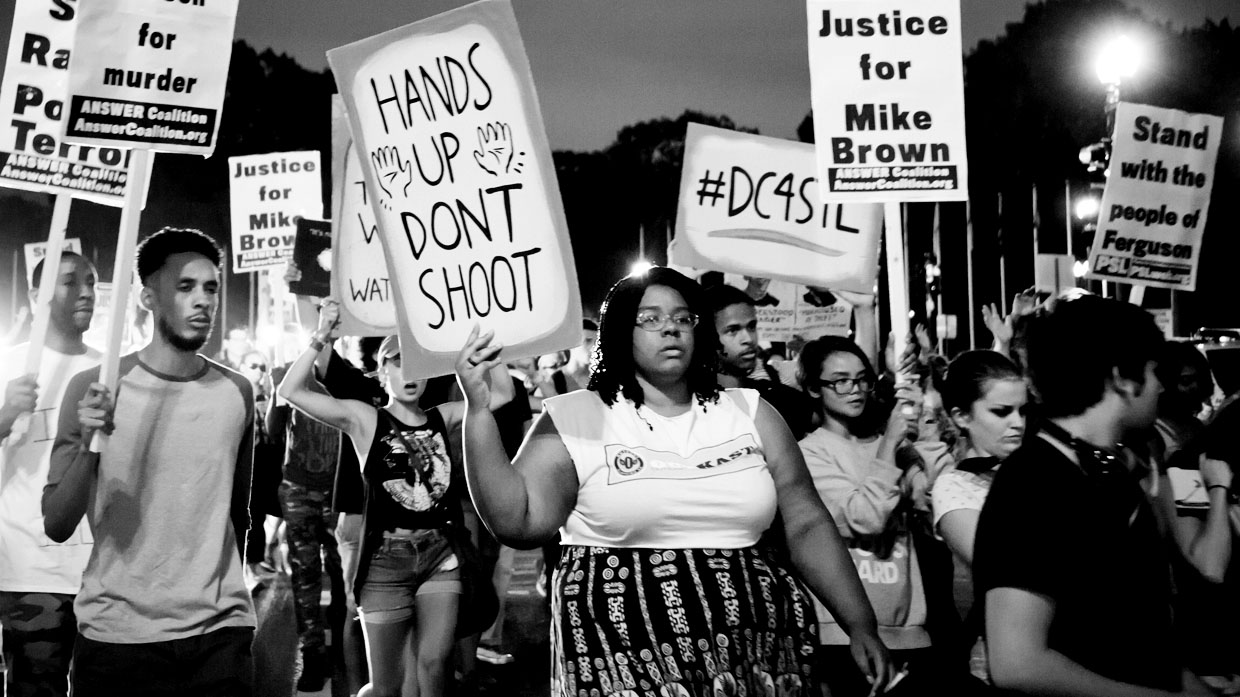Every week in “Pulse,” Leadership Journal provides context and perspective on a stand-out cultural event from the past week, illuminating the ways it might impact local church ministry.
At the one-year anniversary of Mike Brown’s death last week it was clear that the movement and protests that followed have illuminated America’s lingering racial divide.
We’re still talking about Ferguson primarily because of its complexity. Many white Christians, myself included, have been convinced for years that the darkest parts of our racist past were behind us, save for some more remote pockets of the South. Smaller examples of racism seemed inconsequential, even quaint, insofar as they seemed rare and inevitably passing away.
Many white Christians have been convinced for years that the darkest parts of our racist past were behind us.
But the violent revelation that Ferguson brought to light—that black bodies were more likely to be feared, and therefore destroyed—was enough to shock many white Christians out of the misguided idea that racism in any form can be written off as merely old-fashioned or even remotely harmless. The fact of the destructive nature of racism now holds a significant place in the consciousness of most Americans.
Pastors face both a challenge and an opportunity when conveying both the significant power of the gospel to save our corrupt hearts and to change and build up communities. While not every church can realistically aspire to become a multi-ethnic example of God’s kingdom here on earth, pastors can lead their congregation by acknowledging these problems, seeking out input from those most affected, and expressing empathy wherever that expression is valued.
Frustration over one’s own lack of efficacy in solving this problem is understandable. Many pastors of all-white churches who are told their church needs to reflect the diverse nature of the kingdom of God are faced with an impossible task, at least at this moment in history.
That, coupled with the complexity of our history racial violence, makes the problem seem insurmountable. After all, while the facts on the ground of Mike Brown’s death may have been misconstrued, the Department of Justice report that followed revealed a system that nonetheless had a hand in creating an environment in which such an event was likely. But this complexity cuts both ways. The same thing that stunted dialogue in the first few months after Ferguson—the complete inability to place blame on any one person—has now created an environment where dialogue can be productive.
A close look at the real estate business, the prison industry, and our school systems, reveal that the problems Ferguson illuminates go far beyond alleged corrupt cops. A close look at the social systems reveals our own complicity in them.
For pastors of mostly white congregations, the next logical step may be to take a step back and lead your congregation in some soul-searching. There is a biblically prescribed supernatural power in public confession, in grieving with fellow brothers and sisters, and in hearing out those who feel wronged. If Christ’s church can be known for that, we will have taken a significant step forward indeed.
Still, as the problem becomes more complex, solutions become more numerous (even if they’re not as all-encompassing). This American Life’s recent two-part series on school integration spotlights the ways families and communities can affect racial realities. Beyond being a powerful and engaging listen, these two episodes provide powerful insight into how pastors can directly influence the current cultural trajectory. Encouraging families to take part in communities, schools, and situations made up of people who are different than them goes a long way toward improving the overall racial reality. Of course, these are not easy solutions, but they aren’t impossible either.
For the church, these solutions are not just ways to solve the racial divide, but ways to grow our churches in maturity and in likeness to Christ. This challenge is good for the church.
As Matthew Loftus, a family doctor in Baltimore, put it:
“Taking one’s family into sacrificial mission and involving our children in giving to others is by no means a guarantee that they won’t stray. However, if we want to disciple our children we must involve them in loving outreach and model what it means to take up our crosses and follow Jesus.”
The same applies for congregations and their leaders. A year later, pastors play a role in this drama. Whether they find themselves for, against, or neutral in relation to this debate, pastors have been and will continue to affect change, for better or for worse.
Richard Clark is associate editor of Leadership Journal.
Copyright © 2015 by the author or Christianity Today/Leadership Journal. Click here for reprint information on Leadership Journal.









